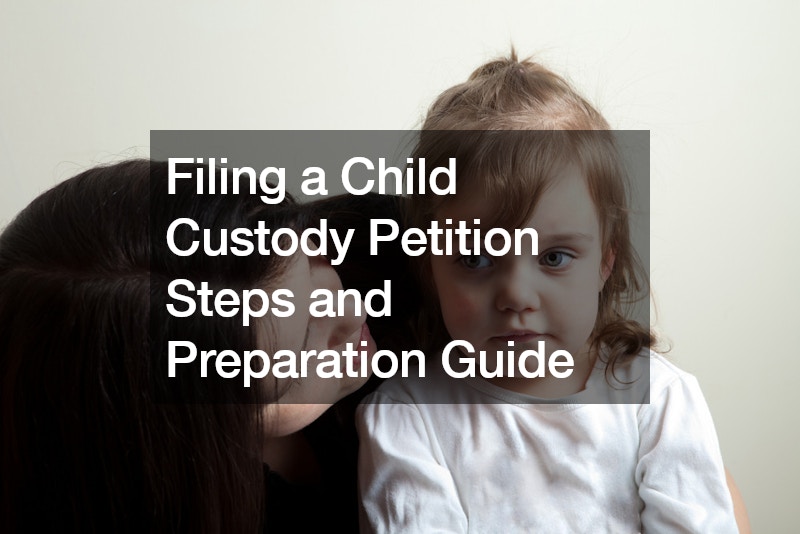Filing a petition for child custody involves a series of essential steps to ensure the process is handled correctly and efficiently. This guide provides a clear pathway to follow, whether you are seeking custody outside of a divorce proceeding or in a unique situation where child custody needs to be established separately.
The first step in filing a petition for child custody is drafting the petition itself. Begin by identifying the appropriate court, typically located in the county where the child resides. Different courts have specific rules regarding custody petitions, so it’s crucial to determine whether your case falls under a general jurisdiction court or a specialized family court.
Gather all necessary documentation, including proof of paternity, the child’s birth certificate, and any existing court orders related to child support or custody.
Next, search for and complete the appropriate forms provided by the court. Many courts offer fill-in-the-blank forms to simplify this process. Be sure to fill out these forms accurately and completely. In some jurisdictions, you may need to sign your petition in front of a notary public. Once the forms are complete, file your petition with the court clerk, who will assign a case number. Serve the other parent with the petition and file proof of service with the court to confirm that the other parent has been notified.
Preparing for the hearing is the final step. After the other parent is served, they will have a specified period to respond to the petition. Consulting with child custody lawyers can be beneficial, especially if the other parent contests the petition or has legal representation. Some jurisdictions require parents to complete parenting classes focused on legal custody and the child’s best interests. Additionally, courts often mandate mediation to encourage parents to reach an agreement on custody arrangements before scheduling a hearing.
Organize your evidence and prepare thoroughly for the court hearing if an agreement is not reached. Child custody lawyers can provide valuable guidance and representation throughout this process, ensuring that your rights and interests, as well as those of your child, are protected.
.








